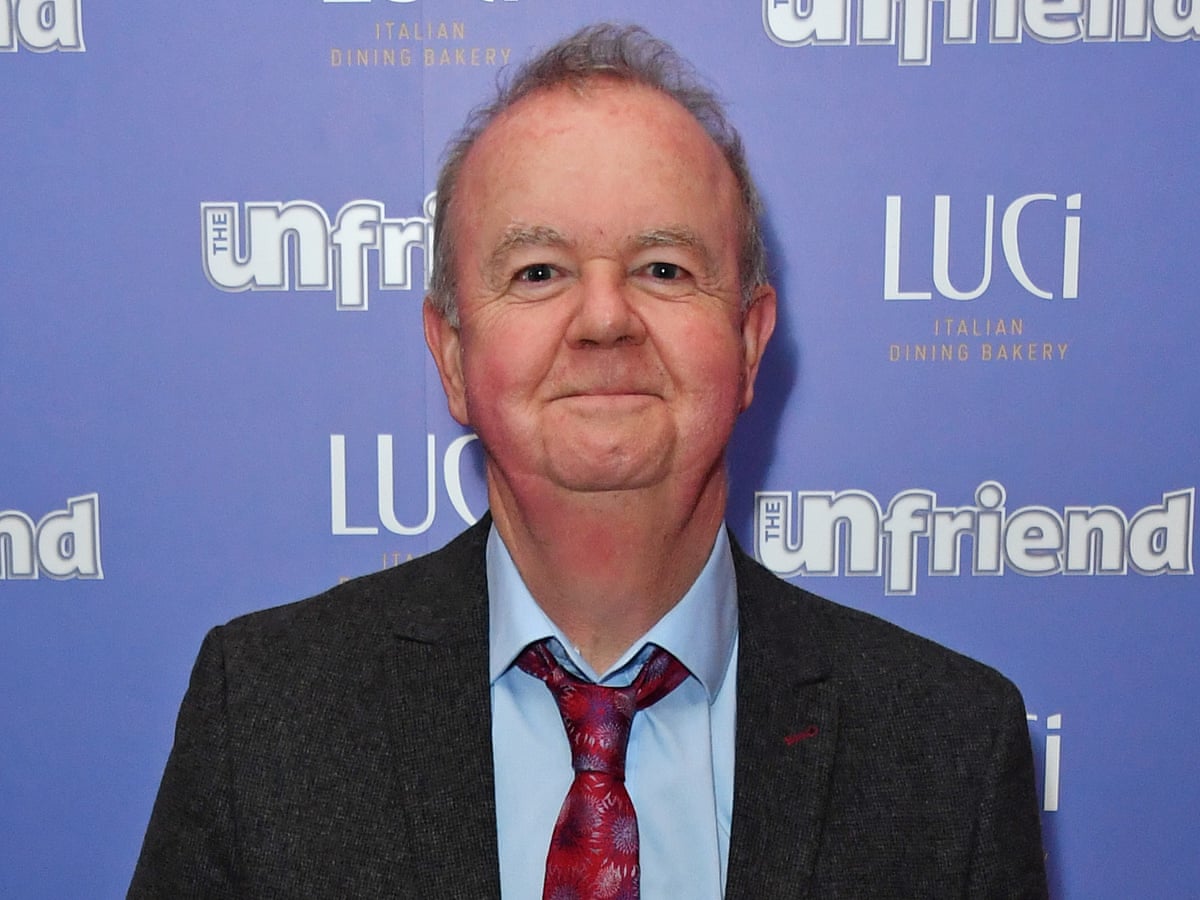
Who is Ian Hislop? Ian Hislop is a British journalist, satirist, and television personality best known for his role as the editor of the satirical magazine Private Eye. Born on July 13, 1960, in London, Hislop has been a prominent figure in British satire for over four decades. Hislop's sharp wit and fearless approach to journalism have made him a household name. He has been the editor of Private Eye since 1986 and is also a team captain on the BBC's satirical quiz show Have I Got News for You. His career is marked by numerous legal battles, a commitment to free speech, and a relentless pursuit of truth.
Key Takeaways:
- Ian Hislop, editor of Private Eye, began his journey in satire at Oxford. His sharp wit and collaborative approach have made him a prominent figure in British journalism and television.
- Hislop's relentless pursuit of truth and fearless satire have earned him numerous awards and accolades. His work at Private Eye has exposed scandals and cover-ups, making a significant impact on British journalism.
Early Life and Education
Ian Hislop's journey into the world of satire and journalism began in London and continued through prestigious educational institutions.
-
Birth and Early Life: Ian David Hislop was born on July 13, 1960, in London, England. His early years laid the foundation for his future in satire.
-
Education: Hislop attended Magdalen College, Oxford. Initially, he applied to study Philosophy, Politics, and Economics (PPE) but later switched to English Literature, setting the stage for his future writing career.
-
University Involvement: At Oxford, Hislop was deeply involved in student journalism. He relaunched and edited the satirical magazine Passing Wind, showcasing his early knack for satire.
Career Beginnings
Hislop's career took off with his contributions to Private Eye and other media outlets.
-
First Article in Private Eye: Hislop's first article in Private Eye appeared in 1980, before he even finished his university finals. The piece was a parody of The Observer magazine's "Room of My Own" feature.
-
Joining Private Eye: After graduating from Oxford, Hislop joined Private Eye immediately. He became the editor in 1986, following Richard Ingrams' departure, marking the start of his long tenure.
-
Editorial Tenure: Hislop has been the editor of Private Eye for over 38 years, making him one of the longest-serving editors in the magazine's history.
Satirical Approach and Legal Battles
Hislop's work at Private Eye is characterized by a sharp satirical approach and numerous legal challenges.
-
Satirical Approach: Hislop believes satire is about bringing ridicule to vice, folly, and humbug. He aims to highlight what should be better, rather than attacking everything indiscriminately.
-
Legal Battles: Private Eye has faced numerous libel suits, making Hislop the most sued man in Britain. These legal challenges have become a significant part of his career.
-
Fighting Fund: To manage the costs of litigation, Private Eye maintains a "fighting fund" to cover legal expenses, ensuring the magazine can continue its fearless reporting.
Collaborative Efforts and Day-to-Day Operations
The success of Private Eye is a result of collaborative efforts and efficient operations.
-
Collaborative Jokes: The jokes in Private Eye are a team effort, typically involving three to four writers. This collaborative approach ensures a diverse range of humor.
-
Day-to-Day Operations: In the week before publication, journalists and writers gather at the main office to work on journalism, while jokes are usually written in Hislop's personal office.
Ownership and Key Contributors
The magazine's ownership and key contributors have played crucial roles in its success.
-
Ownership History: Private Eye was initially owned by a group of friends from college. After Peter Cook's death, his shares were left to his sisters and wife.
-
Paul Foot's Contribution: Paul Foot, a brilliant journalist, brought a strong journalism culture to Private Eye. Hislop had to hire three people to replace Foot after his passing.
-
Richard Brooks: One of the key writers who replaced Paul Foot is Richard Brooks, known for his exceptional work on public finance. Brooks previously worked for Customs and Excise.
Television and Radio Career
Hislop has also made significant contributions to television and radio.
-
Television Career: Hislop's television debut was on the short-lived Channel 4 chat show Loose Talk in 1983. He has since appeared on numerous radio and TV programs.
-
Spitting Image: Hislop was a scriptwriter for the 1980s political satire series Spitting Image, which used puppets to depict well-known figures, mostly politicians.
-
Room 101: Hislop has made two guest appearances on Room 101, a BBC show where guests discuss their most hated items. His first appearance was in 2007, and he returned in 2011.
-
BBC Satirical Quiz Show: Hislop has been a team captain on the BBC satirical quiz show Have I Got News for You since its inception in 1990, becoming a familiar face in British satire.
-
Scouting for Boys: Hislop has also been involved in Ian Hislop's Scouting for Boys, a program celebrating Robert Baden-Powell's book that inspired the Scout movement. He is an Ambassador for The Scout Association.
-
Radio Work: Hislop has written and presented factual programs for Radio 4 on various subjects, including tax rebellions, female hymn composers, scouting, and patron saints of Britain and Ireland.
Awards and Recognition
Hislop's contributions to journalism and satire have earned him numerous awards and accolades.
-
Awards and Recognition: In April 2017, Hislop won the London Press Club's print journalist of the year award. He accepted the award by highlighting Private Eye's best ABC sales figures since its launch 55 years earlier, proving that journalism is worth doing and worth paying for.
-
Contempt of Court Conviction: Hislop was once found guilty of contempt of court. Although initially found innocent by Justice Popplewell, the Attorney General appealed, and the Court of Appeal found him guilty.
Investigative Journalism and Campaigns
Hislop and Private Eye have been instrumental in exposing various scandals and cover-ups.
-
Post Office Horizon IT Scandal: Private Eye played a significant role in exposing the Post Office Horizon IT scandal. Hislop acknowledged that campaigning groups did most of the work, which made him feel embarrassed when people thanked him for doing a story.
-
Jonathan Swift Influence: Hislop is a Jonathan Swiftie and admires the great satirist and journalist who was driven by indignation and bad temper. Swift wrote more about government inadequacies and miscarriages than personal issues.
-
Paul Foot’s Legacy: Paul Foot, who worked for Private Eye in 1986, wrote a piece about an infected blood scandal. Hislop credits Foot with bringing journalism into the magazine and highlights his contributions to investigative journalism.
-
Alan Bates’ Praise: Alan Bates, a well-known actor, praised Private Eye for its coverage of the postmaster scandal. He noted that there was a whole page without a mention of the scandal, proving his funnier and better journalistic skills.
-
Lee Castleton’s Gratitude: Lee Castleton, a postmaster involved in the scandal, thanked Hislop for Private Eye's coverage. This acknowledgment made Hislop feel embarrassed, given that campaigning groups did most of the work.
Recent Achievements
Hislop continues to receive recognition for his contributions to journalism.
-
Society of Editors Fellowship: In 2024, Hislop was awarded a Fellowship Award by the Society of Editors for his outstanding contribution to journalism. The award recognized his advocacy for free speech and Private Eye's relentless campaigning work.
-
Prime Minister’s Attendance: The Society of Editors 25th Anniversary Conference, where Hislop received the fellowship, was attended by the Prime Minister Rishi Sunak MP. The conference also featured other notable speakers, including Lucy Frazer MP and the Lady Chief Justice Baroness Carr of Walton-on-the-Hill.
-
Private Eye’s Impact: Private Eye has been widely recognized for its prominent criticism and lampooning of public figures. It is also known for its in-depth investigative journalism into under-reported scandals and cover-ups. The magazine's fearless and relentless approach to challenging authority has made it a significant force in British journalism.
Ian Hislop: A Satirical Force
Ian Hislop's career is a testament to his dedication to satire and journalism. From his early days at Oxford to becoming the editor of Private Eye, Hislop has consistently challenged authority and brought ridicule to vice, folly, and humbug. His involvement in Have I Got News for You and his contributions to radio and television have cemented his place as a key figure in British satire. Hislop's fearless approach has led to numerous legal battles, but his commitment to free speech and investigative journalism remains unwavering. His work has earned him awards and recognition, proving that satire and journalism are not only worth doing but also worth paying for. Whether through Private Eye's relentless campaigning or his own satirical wit, Ian Hislop continues to be a significant force in British media.
Frequently Asked Questions
Was this page helpful?
Our commitment to delivering trustworthy and engaging content is at the heart of what we do. Each fact on our site is contributed by real users like you, bringing a wealth of diverse insights and information. To ensure the highest standards of accuracy and reliability, our dedicated editors meticulously review each submission. This process guarantees that the facts we share are not only fascinating but also credible. Trust in our commitment to quality and authenticity as you explore and learn with us.


